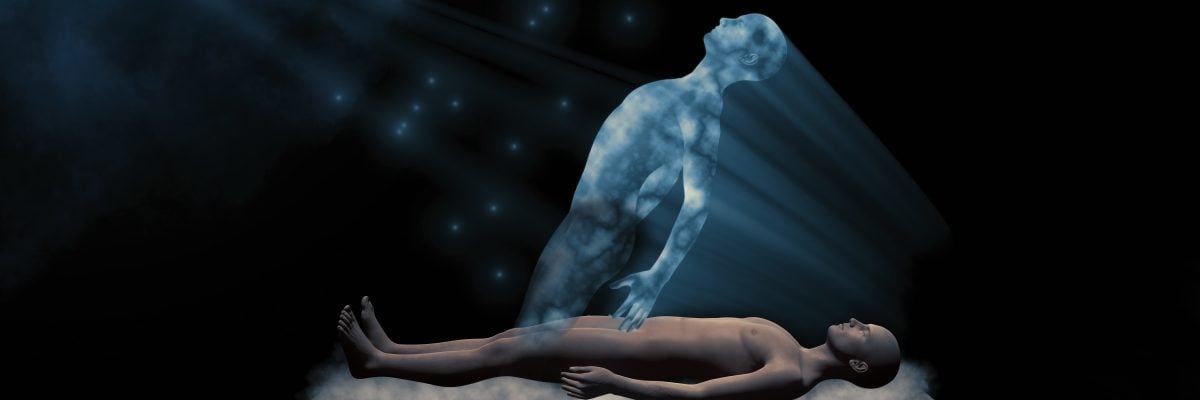
The Catechism teaches that “every spiritual soul is . . . immortal: it does not perish when it separates from the body at death, and it will be reunited with the body at the final resurrection” (366).
But some Christians outside mainstream Protestantism, in particular Seventh-Day Adventists, think that this belief contradicts Scripture: “[God] alone has immortality and dwells in unapproachable light, whom no man has ever seen or can see” (1 Tim. 6:16, emphasis added).
If God alone is immortal, how can the Catholic Church teach that the human soul is immortal? Or at least, they argue, before God bestows immortality upon it in the final resurrection at the end of time, awakening or revivifying it out of the state of unconsciousness into which it fell at death. To them, “The Bible does not teach that people have a separate conscious immortal part of their being that continues to exist after death.”
How can we meet this challenge?
First, Paul can’t be denying that human souls are immortal, because elsewhere the Bible clearly teaches that they are, even before the final resurrection.
Consider, for example, Revelation 7:9-10:
I looked, and behold, great multitude which no man could number, from every nation, from all tribes and peoples and tongues, standing before the throne and before the Lamb, clothed in white robes, with palm branches in their hand, and crying out with a loud voice, “Salvation belongs to our God who sits upon the throne, and to the Lamb!”
That the multitude is from every nation, tribe, and peoples tells us that the multitude consists of humans, not angels. And the context reveals that these humans are in heaven.
For example, verse 17 tells us that they “shall hunger no more, neither thirst any more.” Then in verse 19, we read, “God will wipe away every tear from their eyes.” To no longer hunger, thirst, and have sorrow is not characteristic of earthly life, but only the life in heaven.Moreover, we’re told that this great multitude stands “before the throne and before the Lamb” (v. 9) and “serve[s] him [the Lamb] day and night within his temple” (v. 15, emphasis added). The temple that John speaks of is the heavenly temple, not the earthly temple.
If these human souls were singing praises to God in the heavenly temple and doing so before the end of time, then surely they had existence, and they had it before the final resurrection.
Another passage is Revelation 5:8:
And when he had taken the scroll, the four living creatures and the twenty-four elders fell down before the Lamb, each holding a harp, and with golden bowls full of incense, which are the prayers of the saints.
The “twenty-four elders” are representative of human souls, perhaps deceased leaders of the old and new covenants (twelve patriarchs and twelve apostles). That they are human souls becomes evident in light of the different groups of creatures extending out from the throne of God and the Lamb in concentric circles.The four living creatures, who are angels, constitute the first concentric circle (Rev. 4:6). The twenty-four elders make up the second (Rev. 4:4). Outside the circle of the twenty-four elders, we’re told there is a multitude of angels “numbering myriads of myriads and thousands of thousands” (Rev. 5:11).
Beyond this great multitude of angels, there exists the multitude of human souls “clothed with white robes” that was mentioned above (Rev. 7:9).
Notice the pattern: the four angels, the twenty-four elders, a multitude of angels, and a multitude of human souls. There seems to be a comparison of rank between the two angelic groups and the other two groups. The four angels are higher in rank than the multitude of angels, and the twenty-four elders are higher in rank than the multitude of peoples.
If the comparison of rank is angel to angel for the first and third concentric circles, and we know that the fourth circle to which the second group is compared consists of human souls, then it’s reasonable to conclude that the second concentric circle of creatures, the twenty-four elders, are likewise human souls. If so, Revelation 5:8 serves as further biblical evidence that human souls exist in the afterlife before the final resurrection at the end of time.
What is Paul’s meaning in 1 Timothy 6:16, then? It’s possible that he’s saying God’s immortality is absolute, whereas a creature’s immortality is participatory.
We can grant that Paul is saying that God alone is immortal. But he might be saying that in the same way that the Bible says that God alone is good (Luke 18:19) and holy (Rev. 15:4). It’s not that goodness and holiness can’t be found elsewhere, just that God doesn’t receive those things from anything outside himself. God doesn’t have goodness; he is goodness. God alone is good in the sense that he is good in a non-derived way. His goodness is absolute.
By contrast, creatures are good inasmuch as they live in harmony with the order of goodness inscribed within their natures, which are designed and sustained in existence by God. Whatever goodness a creature achieves is derived or caused, and thus is not goodness in an absolute sense but a participation in goodness.
The same line of reasoning is applied to God’s immortality. He alone has immortality in an absolute sense because he alone is pure being itself. If he doesn’t receive his existence from any cause outside himself because his nature is existence itself, then he necessarily is immortal.
Human souls (and angels), on the other hand, do not exist by nature. They are immortal only inasmuch as God has made them to be that way and sustains them that way. Their immortality belongs to their nature, but only because their natures are designed and made to be so by God.
God alone has immortality in an absolute sense because he doesn’t derive it from any cause outside himself. But that doesn’t mean God can’t create a creature, and in particular a human soul, that has an immortal nature. And as we’ve seen above, the Bible affirms that God does just that—create human souls with an immortal nature that continues to exist beyond death even before the final resurrection at the end of time.



